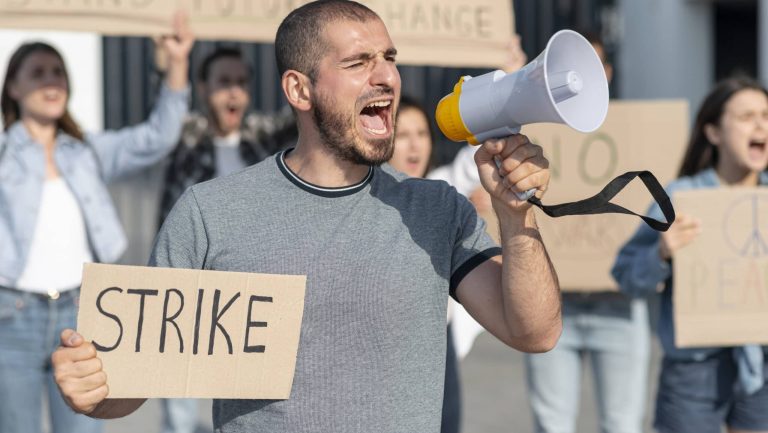Hundreds of video game voice actors and Hollywood actors have taken to the streets of Warner Bros. Studios to protest against the use of artificial intelligence (AI). Major video game companies such as Sony, Warner Bros., Activision and Disney are now in crisis after the voice actors said they will not end their strike until their demands are met.
This is the second strike by the Screen Actors Guild/American Federation of Television and Radio Performers (SAG-AFTRA), following a strike by film and television actors last year. The decision to go on strike comes after months of negotiations with major video game companies, including Electronic Arts, Epic Games, Activision, Disney and Warner Bros.
AI Concerns
The biggest concern among video game voice actors is the increasing use of AI technology and the fear that game studios may use generative AI to recreate their voices. Voice actors fear that video game companies will animate characters without paying them a fair wage. This concern is real as advances in AI have already started to revolutionize various industries, and the gaming industry is no exception.
While SAG-AFTRA has raised concerns when discussing pay and job security with gaming companies, there is more they can agree on when it comes to the use of AI.
In a statement, they said: “Despite reaching agreement on many issues, the employer refuses to explicitly affirm in clear, enforceable language that the AI language protects all performers within this contract. We will not agree to a contract that allows companies to misuse AI to harm our union members.”
The strike could also have a major impact on the iGaming industry, as slot games found on sites such as StrikeWild revolve around games with high quality voice acting, and new releases could be delayed due to the unavailability of voice actors.
In response to the strike, video game studios said they were disappointed by the strike because they had already made significant concessions to the union, adding that their proposal directly addresses their concerns and includes AI protections for all performers, said Audrey Cooling, a spokeswoman for the 10 video game studios negotiating with SAG-AFTRA.
In response, SAG-AFTRA's chief contracting officer, Ray Rodriguez, said that game companies were offering protection to voice actors, not motion performers. In an interview with Aftermath, he said, “The protection only applies to on-camera performers and voice actors based on their proposals, if the performers are identifiable in the output of the AI digital replica. But the reality is that in a video game, even if you're doing stunts that shape Spider-Man's movements, it's Spider-Man that's the one the player sees, so identifiability is not possible. So the identifiability requirement actually puts motion performers outside the scope of protection.”
Impact on the industry
The impact of this strike goes beyond just video game voice actors. It could disrupt the entire gaming industry, from major game studios to indie developers. For example, major studios could face delays to game production and release schedules, which could lead to lost revenue.
The situation could be even worse for indie game developers, many of whom are already working on tight budgets and relying on voice actors to bring characters to life. A strike could cause serious problems and make it even harder for developers to make games. The strike is part of a larger issue in the games industry, where the use of AI is already sparking debate about the future of work. Last year, US TV and film actors won millions of pounds for AI protections in a 118-day strike organised by SAG-AFTRA, the longest strike in the union's 90-year history.

